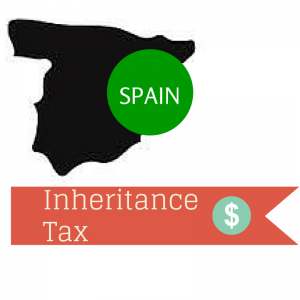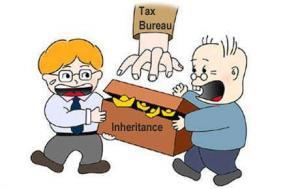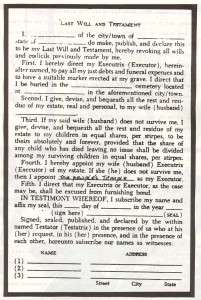INHERITANCE TAX NOW ALSO THE SAME FOR EU- AND NON-EU CITIZENS

As we stated in our post in February 2015, on 01/01/2015, the regulations governing Inheritance Tax were amended, EU citizens began paying the same Inheritance Tax as citizens resident in Spain. From that time EU citizens were able to pay tax in accordance with the regulations of the Autonomous Community where the assets are located. Remember that these regulations are much more beneficial than national regulations on Inheritance Tax, which were applied to EU citizens until that date. This amendment left non-EU citizens out, which were required to continue paying tax according to national regulations.
Supreme Court rules in favour of Non-EU members
However, two judgments of the Supreme Court, in February and March 2018, referring to residents in non-EU countries such as Canada or Switzerland, determined that there would be discrimination contrary to the free movement of capital if non-EU citizens were not allowed to opt for regional regulations in the same manner as EU citizens. Therefore, these non-EU citizens should also be treated in the same manner as EU citizens in terms of Inheritance and Donations Tax, also being eligible to receive regional tax benefits.
We should add that the free movement of capital is enshrined in article 63 of the Treaty on the Functioning of the European Union, which prohibits all restrictions on the movement of capital between Member States and between Member States and third countries, making the limitations for non-EU citizens in terms of Inheritance Tax contrary to the regulations of the European Union.
Since September 2018, the Spanish Tax Agency decided to comply with these rulings and started accepting settlements of Inheritance Tax for non-EU citizens, applying the regulations of the relevant autonomous community to these.
Benefits of tax calculations by Autonomous Communities
This change in tax criteria represents significant savings in terms of inheritance for non-EU citizens, as it should be noted that, in most Autonomous Communities in Spain -including Andalusia-, a widowed spouse, children and descendants, such as grandchildren, barely pay any Inheritance Tax, as they are eligible for significant bonuses. These bonuses in Andalusia were explained in detail in our article from January 2018.
Possibility to reclaim tax until four years back
Suffice it to say that this tax change opens the door to claims from non-EU heirs who have paid Inheritance and Donations Tax over the last few years, if a comparison between national and regional regulations were to show that they paid much more than an EU citizen would have. This claim may be filed provided that the right to claim has not been time-barred, the deadline being established at four years after the payment was made.
Brexit and British citizens
As a last note, considering the consequences of Brexit for British citizens with properties and assets in Spain, fortunately, even if they remain outside the European Union and would be considered non-EU citizens, they would be able to continue to benefit from bonuses and discounts in Inheritance and Donations Tax in the same manner as before.
It should be noted that there are many British homeowners and buyers with properties in Spain and, at least, their heirs will not be harmed in terms of taxes payable in a future inheritance procedure.
Author: Gustavo Calero Monereo, lawyer at C&D Solicitors Torrox (Málaga, Andalusia)




















